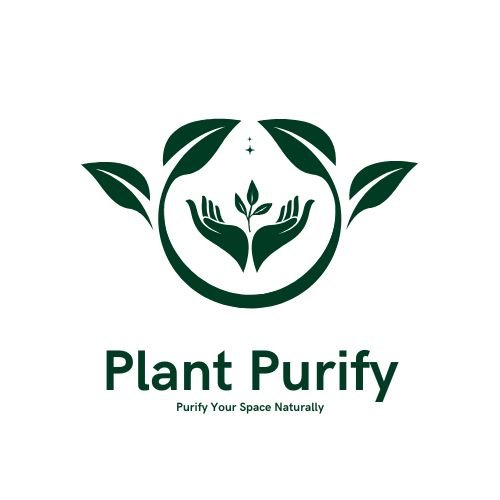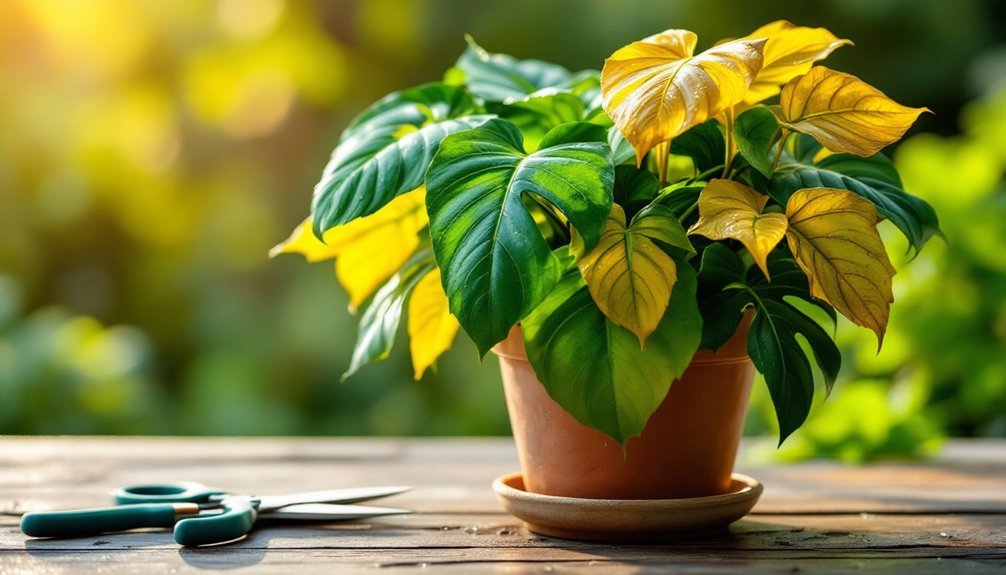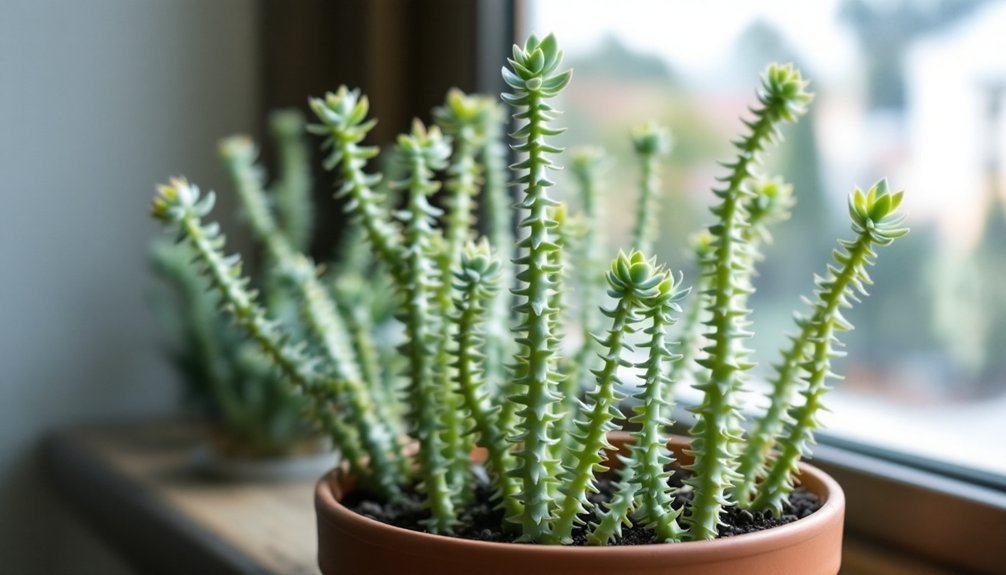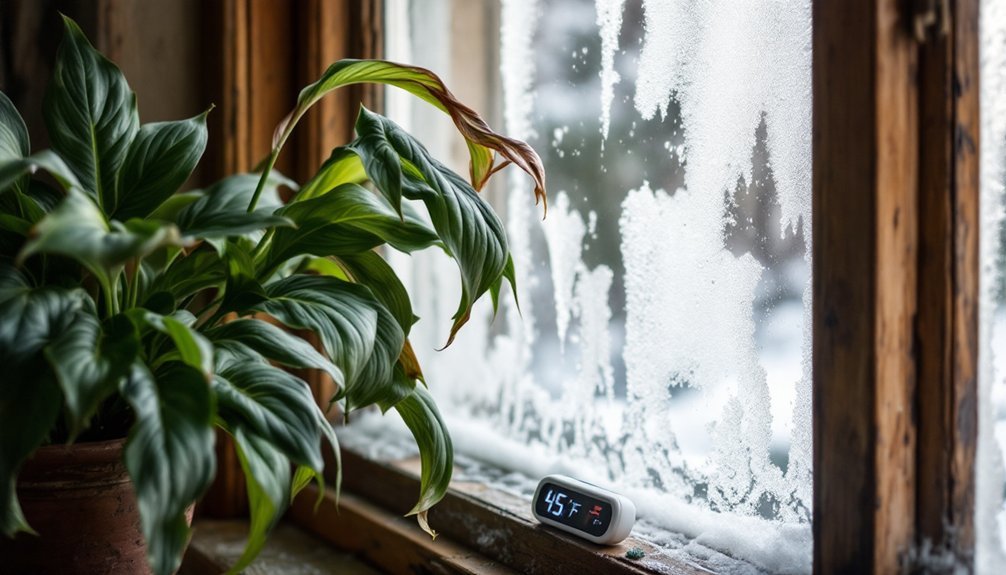Beneficial soil bacteria work as your plant's invisible allies, supercharging their air-purifying abilities. These microscopic helpers create a thriving underground network that transforms toxic compounds, produces natural plant hormones, and fights off harmful pathogens. By maintaining slightly acidic soil pH and adding regular compost, you'll boost your bacterial workforce by up to 50%. When you optimize your soil's microbiome, you'll release nature's most powerful air-cleaning system.
Understanding Beneficial Soil Bacteria and Their Functions

Deep beneath our feet, beneficial soil bacteria work tirelessly as nature's cleanup crew and plant growth promoters. These remarkable soil microorganisms, particularly from Pseudomonas and Acinetobacter genera, transform toxic compounds into harmless substances while producing IAA, an essential hormone that can boost your crop yields by up to 50%.
You'll find these beneficial bacteria playing multiple important roles in your garden. They're constantly converting insoluble nutrients into forms your plants can easily absorb, while also fighting off harmful pathogens through their natural production of antibiotics and lytic enzymes.
As these microscopic warriors support sustainable agriculture, they're simultaneously improving your soil's structure and water retention. Together with other nitrogen-fixing bacteria, they create a diverse, healthy soil microbiome that's fundamental for robust plant growth and long-term soil fertility.
The Living Network: Soil Microbes and Plant Roots
The remarkable partnership between plant roots and soil microbes creates a bustling underground metropolis known as the rhizosphere. In this dynamic zone, beneficial microbes thrive on root exudates, forming an intricate network that supports plant growth and health.
Deep beneath our feet lies a hidden city where roots and microbes work together, fueling life in the soil ecosystem.
You'll find an astonishing number of soil bacteria in healthy soil – up to 1 billion in just a teaspoon! These microscopic helpers transform nutrients into forms your plants can easily absorb, while also producing growth hormones that strengthen root development.
Through processes like nitrogen fixation, bacteria make essential nutrients available to your plants.
This living network doesn't just feed your plants; it also protects them. Beneficial microbes act as natural defenders, competing with harmful pathogens and helping your plants withstand environmental stress.
It's a perfect example of nature's efficient design at work.
Essential Bacteria for Indoor Plant Health

While outdoor gardens naturally develop diverse bacterial communities, indoor plants need extra attention to maintain their microscopic allies.
To boost your plant's health, you'll want to focus on beneficial bacteria like Pseudomonas and Bacillus, which break down organic matter and release essential nutrients your plants need to thrive.
These helpful microorganisms, known as plant growth-promoting rhizobacteria, produce hormones that strengthen root development and can increase yields by up to 50%.
You can support these bacterial communities by regularly adding compost or compost tea to your plant's soil. Not only will this enhance nutrient uptake, but it'll also create a protective shield against diseases.
The bacteria compete with harmful pathogens and produce natural antibiotics, keeping your indoor plants resilient and vigorous.
Natural Mechanisms of Air Purification Through Soil
You'll find a fascinating system at work in your houseplants' soil, where beneficial bacteria form an intricate filtration network with plant roots to break down airborne pollutants.
These microscopic organisms convert volatile organic compounds and other harmful substances into less dangerous materials through their natural metabolic processes.
Your plant's ability to clean the air improves considerably when its soil contains a thriving bacterial community, which supports root health and enhances the overall pollutant-fighting capabilities of the plant-soil system.
Root-Soil Filtration Systems
Living beneath our feet, vast communities of soil bacteria work alongside plant roots to create one of nature's most sophisticated air purification systems.
When you maintain healthy soil, you're supporting billions of beneficial bacteria in every teaspoon that strengthen your garden's natural filtration abilities.
These microscopic helpers break down harmful pollutants into harmless substances, effectively cleaning both air and water. Specific bacteria like Pseudomonas and Acinetobacter target and degrade complex aromatic compounds that contaminate your soil.
Through bioremediation, they transform toxic materials into less harmful forms, enhancing your garden's ability to filter air naturally.
What's even more remarkable is how these bacteria cooperate in the rhizosphere, creating an efficient network that maximizes nutrient uptake while eliminating environmental toxins from your soil's ecosystem.
Microbial Air Cleaning Process
Beneath your garden's surface, soil bacteria execute an intricate air cleaning process that rivals modern purification systems. These microscopic cleaners break down volatile organic compounds through natural bioremediation processes, converting harmful pollutants into harmless byproducts.
| Cleaning Phase | Process | Benefit |
|---|---|---|
| Capture | Soil structure traps airborne particles | Enhanced pollutant diffusion |
| Breakdown | Bacterial metabolism of contaminants | Conversion to safe compounds |
| Enhancement | Enzyme production | Natural air purification |
Your garden's microbial communities work tirelessly to improve air quality. Different bacterial strains specialize in targeting specific contaminants, while their collective action maintains soil structure for better aeration. The enzymes and metabolites they produce further trap and neutralize airborne particles, creating a natural filtration system that continuously cleanses the air you breathe.
Bacteria's Pollutant Breakdown Mechanisms
Through specialized metabolic pathways, soil bacteria execute remarkable pollutant breakdown mechanisms that naturally purify the air around you.
When bacteria in soil encounter organic pollutants, they transform these harmful compounds into harmless substances, effectively cleaning both soil and air.
Beneficial microbes like Pseudomonas and Acinetobacter are nature's environmental cleanup crew, supporting soil health through their natural bioremediation abilities.
Here's how these microscopic defenders protect your environment:
- They use pollutants as food sources, breaking down toxic compounds
- They enhance the overall microbial community's pollutant breakdown capacity
- They prevent contaminants from accumulating and releasing into the air
- They support plant growth while simultaneously detoxifying the environment
These natural processes continuously work to maintain cleaner air and healthier ecosystems around your plants.
Optimizing Soil Composition for Maximum Microbial Activity
You'll maximize microbial activity in your soil by maintaining a slightly acidic pH between 6.0 and 7.0, which creates ideal conditions for beneficial bacteria to thrive and multiply.
To boost bacterial populations naturally, you can incorporate well-aged compost into your soil annually, providing essential organic matter and introducing diverse microorganisms.
Your soil's moisture content should remain consistent, similar to a wrung-out sponge, as bacteria need thin water films around soil particles to effectively process nutrients and maintain healthy colonies.
Ideal Ph for Microbes
When it comes to cultivating a thriving ecosystem of beneficial soil bacteria, maintaining the right pH balance is essential. Your soil bacteria perform best within a pH range of 6.0 to 7.5, where microbial activity and nutrient cycling reach their peak efficiency.
To maintain ideal conditions for your soil's microscopic helpers, you'll want to:
- Test your soil regularly to monitor pH levels
- Add organic amendments like compost to naturally balance pH
- Avoid letting soil become too acidic (below 6.0)
- Prevent alkaline conditions (above 7.5) that restrict bacterial growth
Composting for Bacterial Growth
Building a thriving bacterial ecosystem in your soil starts with proper composting techniques. When you maintain a 30:1 carbon-to-nitrogen ratio, you'll create the perfect environment for beneficial bacteria to flourish and break down organic matter efficiently.
To maximize microbial activity, you'll need to turn your compost pile regularly. This increases oxygen flow, allowing aerobic bacteria to decompose materials more quickly.
Keep moisture levels between 40-60% – it's essential for bacteria to metabolize organic matter effectively. Think of it as creating a cozy home for these microscopic helpers.
Once your compost is ready, applying it to your soil dramatically boosts the bacterial population. This enhanced microbial community improves nutrient availability for your plants, creating a healthier growing environment that naturally supports robust plant growth.
Maintaining Soil Moisture Balance
The right soil moisture balance creates an ideal environment for beneficial bacteria to thrive. When you maintain proper soil moisture levels, these microscopic helpers form thin water films around soil particles, maximizing nutrient availability for your plants.
Adding organic matter improves your soil's ability to retain moisture and support diverse bacterial populations.
Here's how to maintain peak soil moisture for bacterial growth:
- Monitor soil moisture regularly to verify it's moist but not waterlogged, allowing aerobic bacteria to access oxygen.
- Add organic matter like compost to enhance moisture retention and provide food for beneficial bacteria.
- Use cover crops to protect soil moisture levels and promote bacterial diversity.
- Avoid soil compaction to maintain proper water and oxygen flow, supporting healthy bacterial populations.
These practices will boost bacterial activity and enhance plant growth in your garden.
Building a Healthy Microbiome for Indoor Plants
Just as our bodies need diverse gut bacteria to thrive, indoor plants require a robust microbiome in their soil to flourish. Creating this healthy environment involves nurturing beneficial bacteria that enhance your plants' access to essential nutrients like phosphorus and nitrogen.
You can build a thriving soil microbiome by regularly adding compost to your indoor plants' soil. This practice introduces living microorganisms that improve soil health and boost your plants' natural defenses against disease.
Consider using bio-fertilizers, which contain specialized bacteria designed to support plant growth and health. To maintain this beneficial ecosystem, incorporate techniques like mulching and applying aerated compost tea.
These methods help sustain bacterial populations that make nutrients more available to your plants, ultimately leading to stronger, more resilient indoor greenery.
Signs of Active Bacterial Communities in Potting Soil

Recognizing healthy bacterial activity in your potting soil doesn't require special equipment or expertise.
You'll know bacteria in the soil are thriving when you detect that distinct, earthy aroma and notice the rich, dark coloration of your soil organic matter. These beneficial microorganisms improve soil structure and make nutrients plant available through their decomposition activities.
Here's what to look for in soil with active bacterial communities:
- A pleasant, earthy smell indicating healthy decomposition
- Dark-colored soil that retains moisture while maintaining good drainage
- Gentle fizzing or bubbling when you water, showing bacterial gas production
- Strong root development and vibrant plant growth, signaling effective nutrient cycling
These signs confirm that your soil's microscopic helpers are working hard to support your plants' health.
Maintaining Vibrant Soil Ecosystems for Air-Purifying Plants
Maintaining a thriving soil ecosystem serves as the foundation for air-purifying plants to reach their full potential. When you nurture beneficial bacteria in your potting soil, you're supporting a complex network of soil organisms that can number up to 1 billion in just a teaspoon.
These microscopic helpers transform your plant's environment by converting nutrients into accessible forms, much like sustainable agricultural practices on a smaller scale.
To keep your air-purifying plants performing at their best, you'll need to foster these bacterial communities that break down organic matter and recycle nutrients. The diverse population of beneficial bacteria also helps your plants develop stronger resistance to stress, ensuring they'll continue to clean your air effectively.
Frequently Asked Questions
What Does Soil Bacteria Do for Plants?
Your soil's beneficial bacteria boost plant growth by breaking down toxins, producing growth hormones, fixing nitrogen, and making phosphorus available. They'll also improve soil structure for better water retention and nutrient cycling.
What Are the Benefits of Bacteria to Plants?
Your plants benefit from bacteria through enhanced growth, improved nutrient uptake, natural hormone production, and disease protection. They'll convert harmful compounds and fix nitrogen, helping your plants thrive while reducing chemical fertilizer needs.
What Are the Positive Effects of Bacteria in Soil?
You'll find bacteria in soil break down toxins, boost plant growth through IAA production, improve nutrient availability, enhance soil structure, and protect plants from diseases. They're essential for maintaining healthy soil ecosystems.
What Are Four Other Benefits Provided by Soil Bacteria to Plants?
You'll find soil bacteria help your plants by producing natural pesticides, enhancing seed germination, increasing phosphorus availability, and creating essential enzymes that break down pollutants. These microscopic allies greatly improve plant health.
In Summary
You've learned how soil bacteria work tirelessly with your indoor plants to create cleaner air. By nurturing these microscopic allies through proper soil care, you're not just growing healthier plants – you're cultivating a living filtration system. Keep monitoring your soil's health, maintain ideal conditions for bacterial growth, and you'll enjoy the benefits of nature's own air-purifying partnership right in your home.





Leave a Reply